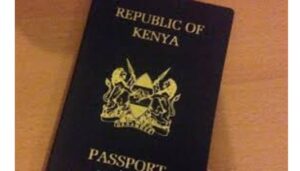KRA demands Safaricom to disclose traders who ditched mobile money payments to evade paying taxes

Kenya Revenue Authority (KRA) has announced plans to hunt down traders who ditched mobile money payments to evade paying taxes
Kenya Revenue Authority (KRA) has announced plans to hunt down traders who ditched mobile money payments to evade paying taxes.
Since enhancing compliance checks in key towns last month, the Kenya Revenue Authority (KRA) has noticed an increasing number of company owners abandoning mobile merchant payment accounts and switching back to cash transactions.
According to the taxman, there is a pattern where companies that accepted payments using Lipa Na M-Pesa Buy Goods Till numbers are now requesting cash payments from their clients.
This happens one month after the KRA sent out 1,400 revenue service assistants with paramilitary training to support traders in improving their tax compliance, including making it easier for firms to register online.
During a Media Lab in Nairobi on Tuesday, October 17, Chief Manager Domestic Tax Department Caroline Rotich said KRA is working with Safaricom to identify businesses that stopped using Lipa na M-Pesa.
“It is already noted that [closure of Lipa Na M-Pesa merchant accounts] is what is happening in the market. We are working on strategies on how we can work around this,” Caroline Rotich, the KRA’s chief manager in the Domestic Taxes Department, said on Tuesday.
Alarm over vendors selling cooking oil mixed with sewage water
Government increases rent by 10% in all state-owned residential houses
Kenya Power its shareholding structure
At least 500 killed as Israel strikes Gaza hospital complex packed with wounded
Raila dismisses perception he is a serial loser after FIVE failed attempts at presidency
Neither Jordan nor Egypt will accept any Palestinian refugees; Jordan’s King Abdullah II warns
“We are collaborating with Safaricom to get information on such traders who are jeopardizing tax compliance measures.” “We will also facilitate integration and do follow-ups once we have the information to enhance compliance through our RSA programme,” said Rotich.
Rotich explained that Lipa Na M-Pesa merchant solutions enhance tax compliance.
The commissioner reiterated RSA officers would register businesses online and verify taxpayers’ details. Last week, RSA officers asked for M-Pesa transaction details and statements from several traders in Nyeri County.
Safaricom’s Lipa Na M-Pesa Buy Goods Till has been popular amongst small traders in recent years as it enables them to collect payments on their till and use the same cash to settle bills such as wages and commissions to employees.
Pochi La Biashara is tailored for the registration of informal business owners such as food vendors, kiosk owners, boda boda operators, and second-hand clothes dealers.
This enables them to “receive and separate business funds from personal funds on their M-Pesa number”.
Also read,
Why there’s always frequent power blackouts during the rainy season; KPLC CEO
Senior police boss found dead in her house
African Union accuses Israel of war crimes in following air strikes on Gaza hospital
Government publishes names and photos of 35 most wanted terror suspects (LIST)
DCI summons Mavoko MP, former senior police bosses, and land officials over Portland Saga
FIVE men convicted for exhuming a human skull ‘to get rich’
Follow us




